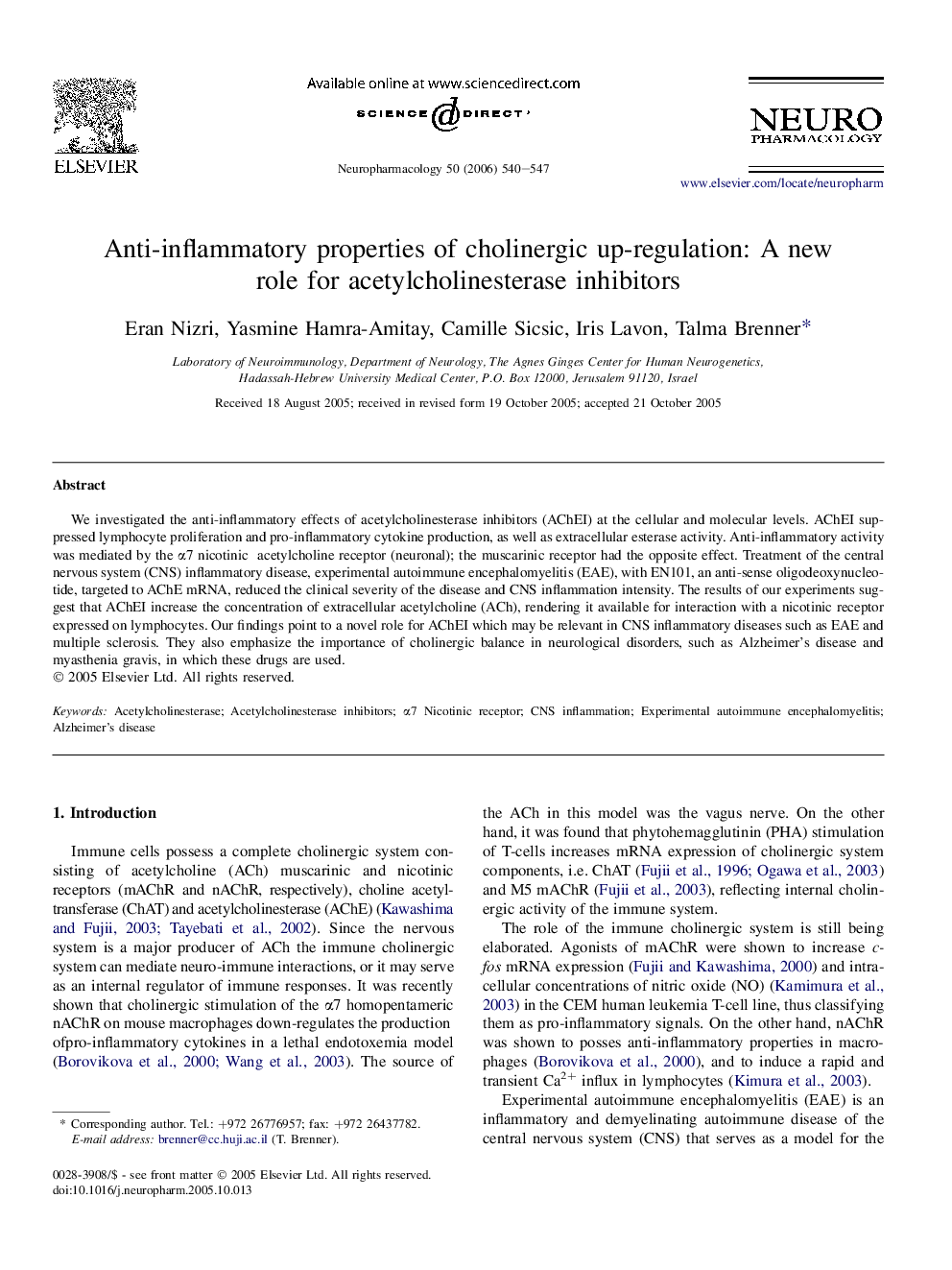| Article ID | Journal | Published Year | Pages | File Type |
|---|---|---|---|---|
| 2495181 | Neuropharmacology | 2006 | 8 Pages |
We investigated the anti-inflammatory effects of acetylcholinesterase inhibitors (AChEI) at the cellular and molecular levels. AChEI suppressed lymphocyte proliferation and pro-inflammatory cytokine production, as well as extracellular esterase activity. Anti-inflammatory activity was mediated by the α7 nicotinic acetylcholine receptor (neuronal); the muscarinic receptor had the opposite effect. Treatment of the central nervous system (CNS) inflammatory disease, experimental autoimmune encephalomyelitis (EAE), with EN101, an anti-sense oligodeoxynucleotide, targeted to AChE mRNA, reduced the clinical severity of the disease and CNS inflammation intensity. The results of our experiments suggest that AChEI increase the concentration of extracellular acetylcholine (ACh), rendering it available for interaction with a nicotinic receptor expressed on lymphocytes. Our findings point to a novel role for AChEI which may be relevant in CNS inflammatory diseases such as EAE and multiple sclerosis. They also emphasize the importance of cholinergic balance in neurological disorders, such as Alzheimer's disease and myasthenia gravis, in which these drugs are used.
